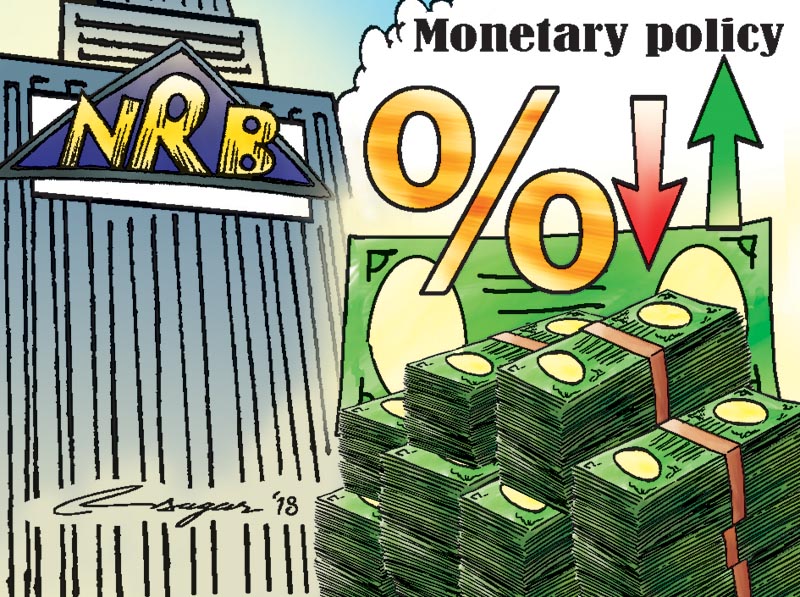Monetary Policy review draws mixed reaction from lobby groups, bankers
Kathmandu, February 19
The country’s business lobby groups and bankers have partially welcomed the mid-term review of the Monetary Policy, albeit the central bank claims the new policy document can ease the problem of high lending rates that is hitting businesses.
The Nepal Rastra Bank (NRB), the central bank, unveiled the revised version of the Monetary Policy on Tuesday evening. Bankers and business lobby groups, such as the Federation of Nepalese Chambers of Commerce and Industry (FNCCI) and the Confederation of Nepalese Industries (CNI), have said that the revised policy document has provided short-term solution to problems seen in the banking sector such as interest rate volatility, but it has failed to recommend ways to tackle these problems in the long run.
The revised version of the Monetary Policy has proposed to cap call deposit interest at 10 per cent; widen the refinancing pool to Rs 50 billion from existing Rs 35 billion; put a ceiling on interest premium on loans extended to the productive sector; prevent banks from imposing interest of over three per cent on export refinancing credit; and reduce interest on general refinancing credit to eight per cent from existing nine per cent.
These measures, according to the central bank, were introduced to reduce volatility in the banking sector.
But the business lobby groups are not very happy with these measures.
“We had asked the central bank to expand refinancing pool to Rs 100 billion.
But our demand was not fulfilled,” said FNCCI President Bhawani Rana. The CNI, on the other hand, had asked the central bank to widen the refinancing pool to Rs 150 billion. “We are not very happy with the latest expansion,” said CNI President Hari Bhakta Sharma.
Banks and financial institutions can dip into refinancing pool of the central bank to provide credit to good borrowers at lower interest rate. Currently, general interest rate on refinancing loan stands at nine per cent. The revised Monetary Policy has proposed to reduce that rate to eight per cent.
The FNCCI, which is yet to release its official statement on mid-term review of Monetary Policy, is satisfied with interest rate reduction on refinancing credit. But CNI’s Sharma said general interest rate on refinancing credit should not exceed seven per cent.
Business lobby groups have been demanding reduction in interest on refinancing credit and expansion of refinancing pool as there is shortage of loans in the banking sector, which has caused lending rates to shoot through the roof. Average lending rate currently hovers around 14 per cent, which industrialists and entrepreneurs say is very high and increases the cost of doing business.
“Interest rates are rising because of gap in credit demand. The credit demand gap in the entire economy is above US$3.5 billion,” said Sharma.
“The government and the central bank should, thus, expand the size of refinancing fund also introduce longterm policies to increase cash flow in the market.”
The Nepal Bankers Association (NBA), an umbrella body of commercial banks, has not made its official views public on mid-term review of the Monetary Policy. But its president Gyanendra Dhungana said that the decision to cap call deposit interest at 10 per cent and put a ceiling on interest premium may have “negative impact in the entire banking sector”.
The NBA representatives are scheduled to meet on Thursday. It will release its statement on Monetary Policy’s mid-term review then.






